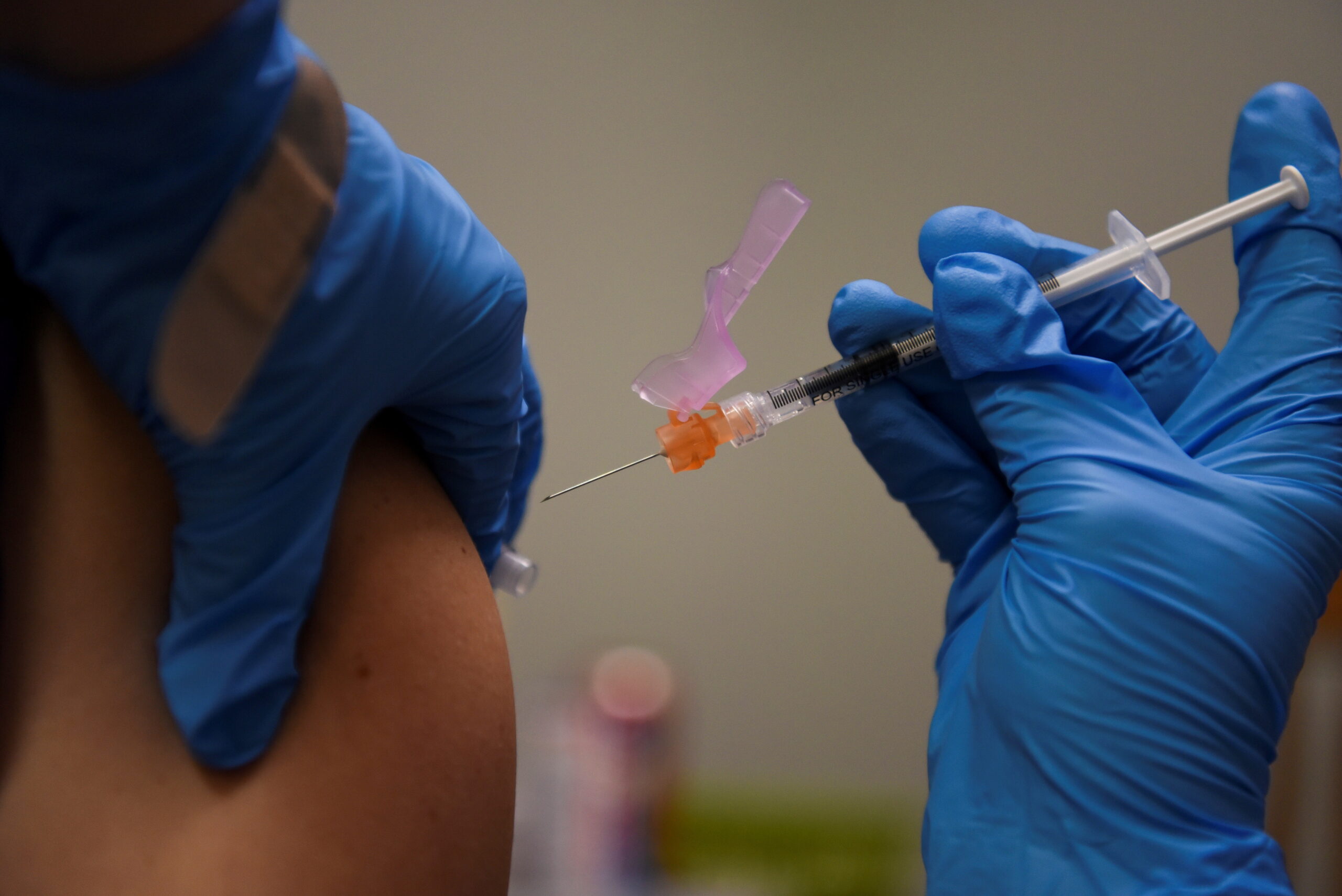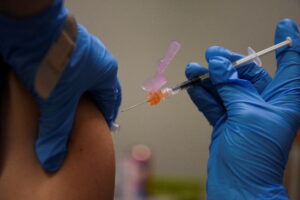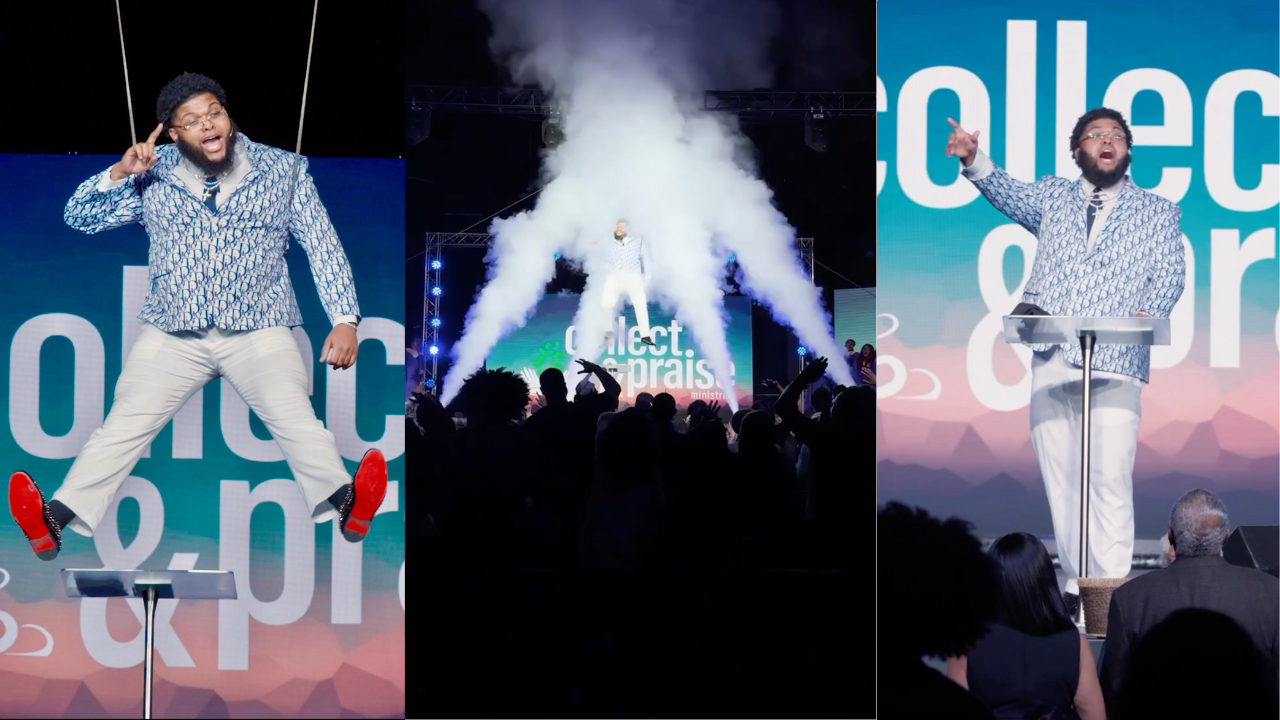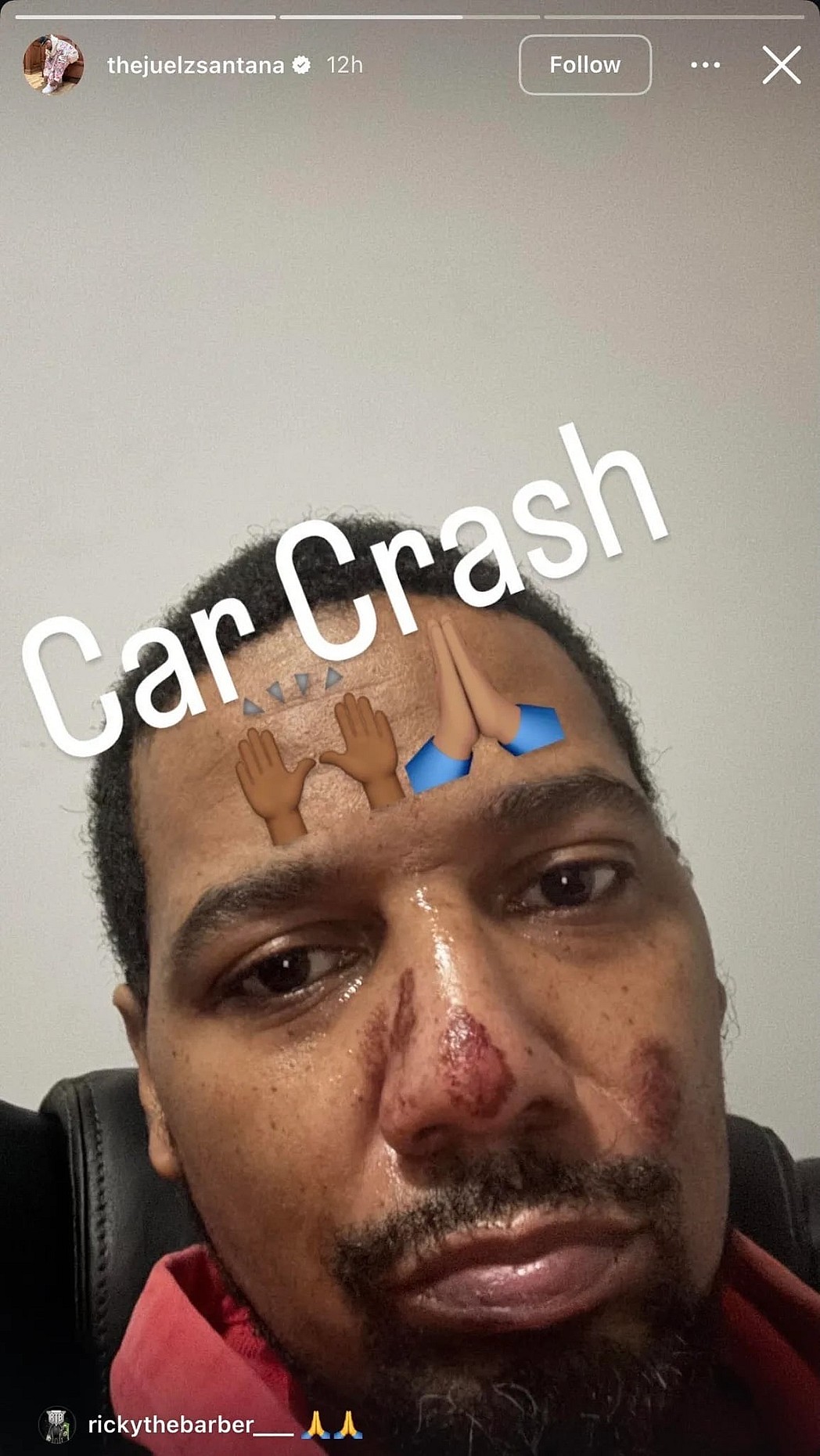
While the U.S. government is no longer responsible for purchasing or distributing COVID-19 vaccines, reports indicate that the September rollout of the new booster is slow and features more challenges than previous rollouts.
As hospitalizations rise, the Centers for Disease Control and Prevention has recommended that everyone older than six months get updated shots, but many have turned to social media to share experiences with insurer roadblocks, out-of-network denials, or appointment delays.
This season also marks the first time vaccines are available for the three viruses responsible for most hospitalizations–COVID-19, RSV, and flu.
Over the last year, the U.S. Department of Health and Human Services has worked to “ensure a smooth transition of the purchase and distribution of the COVID-19 vaccine to the commercial market in the fall of 2023.”
Katelyn Jetelina, a University of Texas epidemiologist, told PBS that the systemic shift impacts multiple payers and insurance companies and the changes to the delivery system.
Updated COVID-19 vaccines are available to most adults living in the U.S. at no cost through their private health insurance, Medicare, and Medicaid plans, according to the CDC. Jetelina emphasizes that no one should be paying for a COVID-19 vaccine, but now insurance companies are no longer required to pay out of pocket.
“This may mean you have to get the vaccine at your doctor’s office [as] opposed to a pharmacy that is not in network,” she said, adding that uninsured people are covered under federal law to get a vaccine at no cost at a CVS and Walgreens, thanks to a CDC initiative called the Bridge Access Program. The program is designed to provide vaccines through local healthcare providers, health centers, and select pharmacies.
Meanwhile, a new survey indicates that 52% of people will “probably” or “definitely” not even get the vaccine. The KFF COVID-19 Vaccine Monitor poll, conducted between Sept. 6 and Sept. 13, polled 1,296 U.S. adults online and by telephone and found that people reported more likely to get the flu shot and the new RSV vaccine than they are to get the new COVID-19 vaccine.
A challenge for getting the COVID-19 vaccine is timing, according to Jetelina. Factors include the last time you were infected and the measurement of risk. She recommends that anyone eligible for all three vaccines do so before Oct. 31.
RELATED CONTENT: Women of Color for Equal Justice Submits Application to Ban Vaccine Mandates





